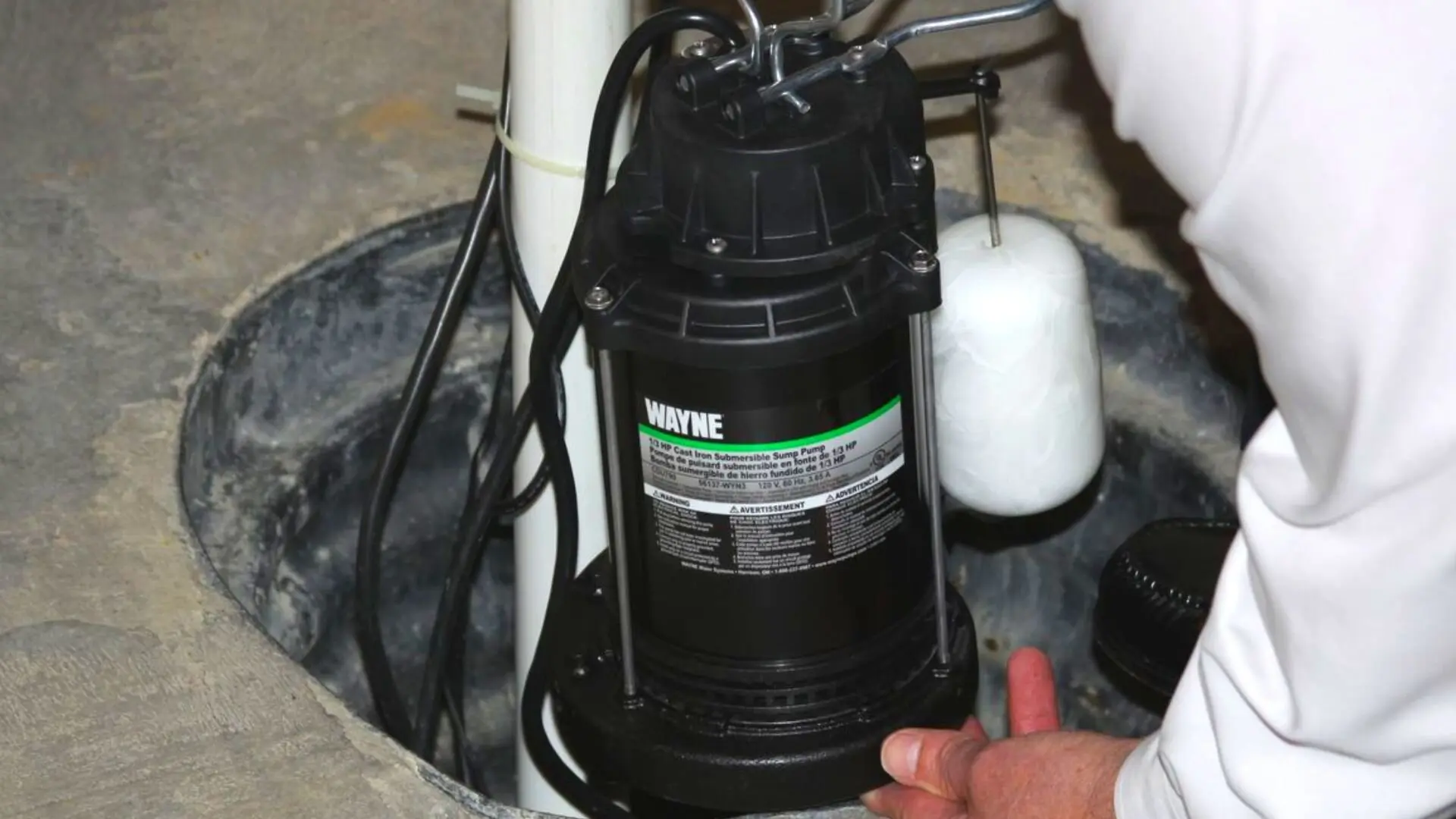Simple Tips for Maintaining Your Sump Pump
Simple Tips for Maintaining Your Sump Pump
Blog Article
This post down the page pertaining to Keep Your Sump Pump Clean, It'll Keep You Dry is incredibly informative. Give it a go and make your own conclusions.

Sump pumps are crucial components in several homes, especially in areas susceptible to flooding or extreme moisture. They assist stop water damage by effectively eliminating excess water from cellars or crawl spaces. Nonetheless, like any other device, sump pumps need regular upkeep to guarantee they work successfully when required the most. Cleaning your sump pump is an essential part of its maintenance, and recognizing how to do it appropriately can save you from pricey repairs and potential catastrophes.
Intro
Preserving a tidy sump pump is vital for its appropriate performance and long life. Ignoring this vital task can lead to blockages, malfunctions, and eventually, water damage to your home. Therefore, learning just how to cleanse a sump pump is essential for property owners that count on these devices to maintain their basements completely dry and safeguarded.
Recognizing the Sump Pump
Before diving right into the cleaning process, it's necessary to have a basic understanding of exactly how a sump pump functions. Normally set up in a pit or container listed below the cellar flooring, a sump pump contains a number of crucial parts, consisting of a pump, a float button, and a discharge pipe. When water gathers in the pit, the float button activates the pump, which then pumps the water out via the discharge pipe, away from the structure's foundation.
Signs of a Dirty Sump Pump
Knowing when your sump pump needs cleaning is crucial for protecting against potential breakdowns. Some typical indicators that show a filthy sump pump include strange sounds throughout operation, reduced water flow, and noticeable particles in the pit. If you see any of these signs and symptoms, it's essential to clean your sump pump quickly to prevent any more concerns.
Getting ready for Cleaning
Prior to you start cleaning your sump pump, it's necessary to take some safety preventative measures. Beginning by turning off the power to the pump to prevent any kind of electric accidents. Additionally, put on appropriate protective gear, such as handwear covers and safety glasses, to shield on your own from dirt, debris, and prospective pathogens.
Detailed Overview to Cleansing a Sump Pump
Turning off the Power
Begin by separating the power supply to the sump pump to avoid any accidents while cleansing.
Eliminating Debris and Dust
Use a bucket or an inside story to eliminate any type of noticeable particles, dirt, or debris from the sump pit. Dispose of the particles properly to avoid it from obstructing the pump or the discharge pipe.
Cleaning up the Pump and Float Switch Over
Once the pit is clear of debris, meticulously remove the pump from the pit. Examine the pump and the float button for any kind of indicators of damages or wear. Make use of a soft brush or towel to clean up the surfaces and remove any kind of collected grime.
Purging the System
After cleaning the pump and float button, flush the sump pit with tidy water to eliminate any type of continuing to be dust or sediment. This will certainly assist make sure that the pump operates efficiently and effectively.
Checking for Appropriate Performance
Before re-installing the pump, do a fast test to ensure that the float switch turns on the pump correctly. Pour some water right into the sump pit and observe the pump's procedure. If everything is functioning correctly, you can reassemble the pump and reconnect the power supply.
Maintenance Tips to Keep Your Sump Pump Clean
In addition to periodic cleaning, there are a number of maintenance ideas you can comply with to maintain your sump pump in optimal problem:
Verdict
Cleaning your sump pump is an essential aspect of its maintenance and makes sure that it runs effectively when you need it the most. By complying with the steps described in this guide and including normal upkeep right into your regimen, you can expand the life expectancy of your sump pump and safeguard your home from water damages.
6 STEPS ON HOW TO CLEAN A SUMP PUMP PROPERLY
UNDERSTANDING SUMP PUMPS
Your sump pump plays a crucial role in protecting your home by managing and removing excess water. It primarily functions as a “shield”, guarding your basement against the damaging effects of water accumulation. The pump is housed in a sump pit in the lowest part of your basement, and its job is to pump out any water that collects there.
During heavy rainfalls or when snow melts rapidly, water can infiltrate your basement, posing potential risks like flooding, structural damage, and harmful mold growth. Here, the sump pump springs into action, pumping out the intruding water and directing it away from your home.
SAFETY FIRST
Before cleaning, remember to prioritize safety. Disconnect the sump pump from the power source to prevent any accidental electric shocks. Also, wear sturdy gloves to protect your hands from any sharp or dirty components within the pump.
REMOVE THE SUMP PUMP
After ensuring your safety, the next step is to remove the sump pump from its pit. Doing this might require careful maneuvering as you don’t want to damage any pump components. Once removed, clean the sump pit to remove any accumulated debris or sludge.
INSPECT THE PUMP
Inspect the pump for any visible signs of wear or damage. Check the power cord, float switch, and impeller housing. If any components look worn out or damaged, consider replacing them to ensure optimal performance.
CLEAN THE PUMP
Thoroughly clean the pump with warm, soapy water. Make sure to rid it of any dirt, gravel, or other debris that might impede its performance. You can use a toothbrush to clean the small, hard-to-reach parts of the pump.
REINSTALL THE SUMP PUMP
Reinstall the pump into the sump pit Make sure it’s positioned correctly to remove the water effectively Once it’s back in place, reconnect it to the power source TEST THE PUMP
Finally, pour some water into the pit to ensure the pump works correctly. It should start automatically and begin pumping out the water; if it doesn’t, check the power source and the positioning of the pump.
Remember, while cleaning your sump pump is an essential part of home maintenance, hiring a professional plumber for a thorough inspection and cleaning at least once a year is also important. This will ensure that your pump is in optimal condition, ready to protect your home from potential water damage.
BEST PRACTICES FOR CLEANING SUMP PUMP DISCHARGE PIPES
Regular Inspection: Regularly inspect your discharge pipes, especially during heavy rainfall or snowmelt periods. Look for any signs of blockage or damage. Early detection of problems can prevent serious issues down the line. Periodic Cleaning: Over time, sediment and debris can accumulate in the discharge pipes, impeding the flow of water. Regular cleaning helps keep the pipes clear and functioning efficiently. You can use a high-pressure water jet to effectively clean the pipes. Insulation During Winter: In colder climates, discharge pipes can freeze, blocking the outflow of water. Protect your discharge pipes from freezing temperatures by insulating them with foam pipe insulation. This will ensure the sump pump can continue to discharge water even in freezing conditions. Proper Positioning: The discharge pipe should be positioned to direct water away from your home’s foundation. Improper positioning can lead to water seeping back into the basement. Ensure the pipe is long enough and angled correctly. Installation of a Check Valve: A check valve prevents water from flowing back into your sump pit after the pump has pushed it out. Installing a check valve helps maintain the efficiency of your sump pump and reduces the risk of flooding. Minimize Pipe Turns: Every curve or turn in the discharge pipe can decrease the efficiency of water flow. By minimizing turns and bends in your discharge pipe, you can increase the efficiency of your sump pump. https://www.fullspeedplumbing.com/how-to-clean-a-sump-pump-properly9999/

As a reader on Steps to Cleaning Your Sump Pump Properly, I think sharing that section was really helpful. If you liked our blog posting please don't forget to pass it around. Thank you for taking the time to read it.
Booking Page Report this page